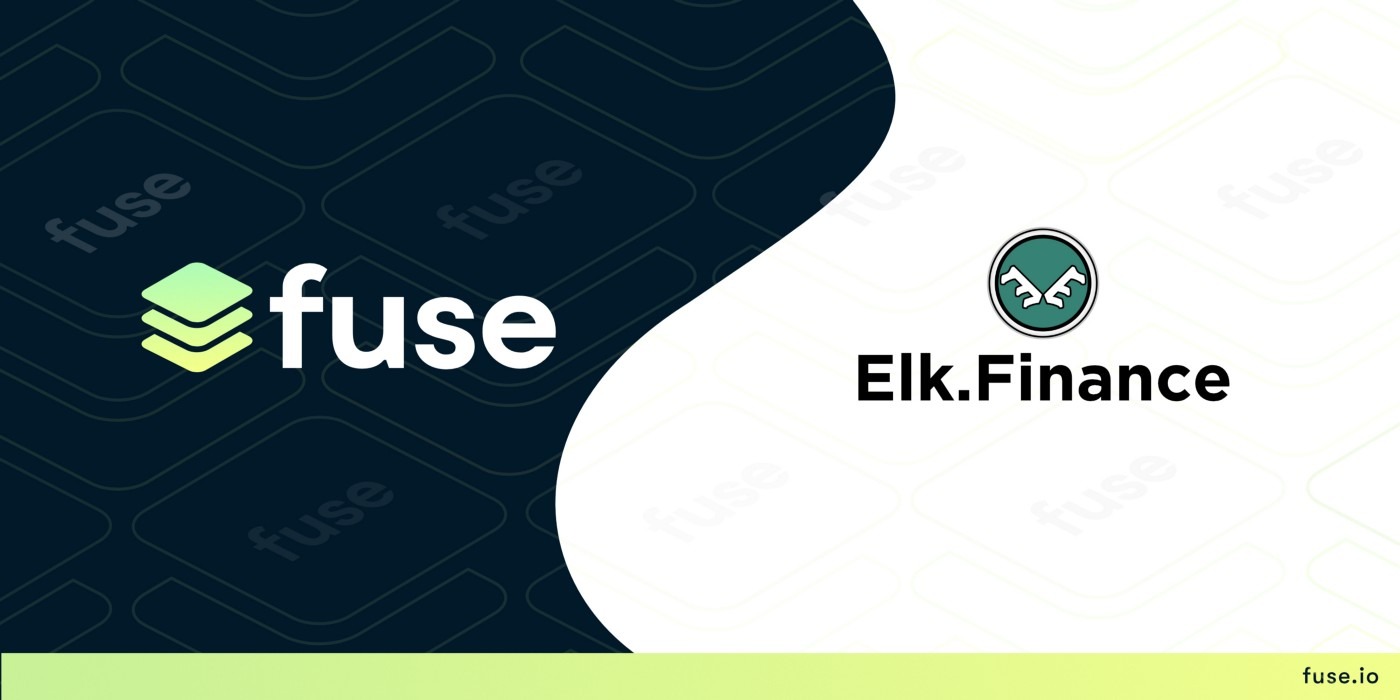Fuse Network has been added to the list of blockchains supported by the Elk Finance interoperability protocol. Fuse users can now buy ELK on Fuse transfer it to any supported chain and use it to buy the desired asset on that chain.
In addition to the impressive performance of the crypto space as a whole, this year has been marked by the breakout growth of multiple blockchain platforms, especially EVM-compatible chains, including Fuse Network. It is becoming increasingly clear that the future is with multiple coexisting blockchains working together rather than one or two completely dominant ones.
In this context, interoperability across chains becomes crucial to the continued development of the ecosystem. An array of platforms have emerged to address the need, and the Elk Finance protocol is one of those that stand out thanks to its innovative approach .
Cross-chain Value Transfers without Bridging Tokens
Elk Finance can be thought of as a protocol enabling anyone to sell a token on the starting chain and buy its version or another token on the destination chain. Elk Finance is different from most blockchain interoperability protocols in that it does not involve bridging tokens from one blockchain to another in the usual form. The only token that moves between chains is the protocol’s native ELK token.
A user wishing to exchange a token on one supported chain for a token on another needs to buy ELK on the former, transfer ELK to the latter and obtain the desired asset. All this is done entirely via the Elk Finance protocol that includes decentralized exchanges (DEXes) on each supported chain and the ElkNet Smart Router layer.
Elk DEX is an AMM-based decentralized exchange where people can swap tokens into ELK or other tokens. Liquidity providers on ELK-denominated trading pools are protected by the protocol from major impermanent loss through additional ELK token payments (to be claimed as part of the staking contracts) in case the price of ELK drops drastically.
According to Elk Finance, this approach to transferring value across chains has two major advantages. First, there is no bridge-induced token fragmentation. Consider that a traditional bridge necessitates the creation of a version of a token native to one chain on another. Each bridge platform will thus tend to create its own wrapper of the original token on the destination chain, which can lead to reduced liquidity, confusion and friction.
Another issue that traditional bridging solutions tend to create is unreliable liquidity. This happens when projects attempt to solve the token fragmentation problem by providing users with the desired version of the token on the destination chain directly instead of leaving them with the bridge-specific wrapper. The functioning of this setup requires that the bridge operator constantly maintains sufficient liquidity on the destination chain side but it is almost bound to cause transaction delays for many users or significant capital inefficiency for the bridge operator.
In the future, Elk Finance will introduce a cross-chain Swiss Franc-pegged stablecoin called CHFT. Another important innovation Elk is looking to implement is cross-chain data transfers.
How Fuse integrates Elk Finance
The Elk Finance protocol has now added Fuse Network to the list of the supported blockchains. Those include OEC, HECO, Binance Smart Chain (BSC), Hoo, Fantom, Moonriver, Polygon, Harmony, Avalanche, Elastos, xDAI, KCC, Telos and Cronos.
Elk DEX has been deployed on the Fuse Network blockchain, and the first incentivized trading pools on Fuse offered by Elk are:
- FUSE-ELK
- fUSD-ELK
- USDC-ELK
- USDT-ELK
Fuse users can now purchase ELK inside the Elk Finance web application. They can then transfer ELK tokens using ElkNet to any supported chain and swap them for the asset of their choosing on the latter using the same convenient interface.
About Elk Finance
Elk Finance is a decentralized network for cross-chain liquidity. ElkNet, its cutting-edge multi-chain protocol, makes it easy for anyone to move value and exchange cryptocurrencies across blockchains quickly and securely at a low cost. The powerful ElkNet framework also lets developers imagine and build novel cross-chain applications.
Elk is the most extensive multichain protocol in the world, seamlessly connecting over 15+ chains. Currently supports Avalanche, Polygon, Fantom Opera Network, Huobi ECO Chain, xDai, Binance Smart Chain, HOO Smart Chain, KuCoin Community Chain, Harmony One, OKExChain, Elastos, Moonrive, Telos & Cronos.
The Fuse team is thrilled by the collaboration with a leading cross-chain interoperability service provider. We are confident that it represents a major step towards significantly reducing costs and friction involved in transferring assets to and from Fuse Network.
Follow our social media channels to stay updated on recent news and developments at
We also encourage you to subscribe to our newsletter here.
.svg)
.svg)











